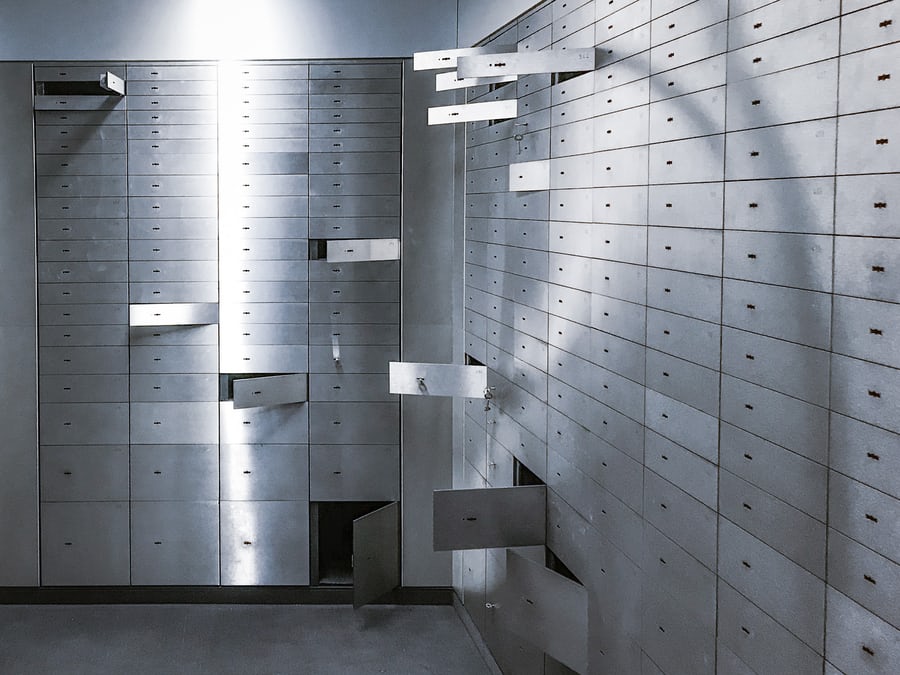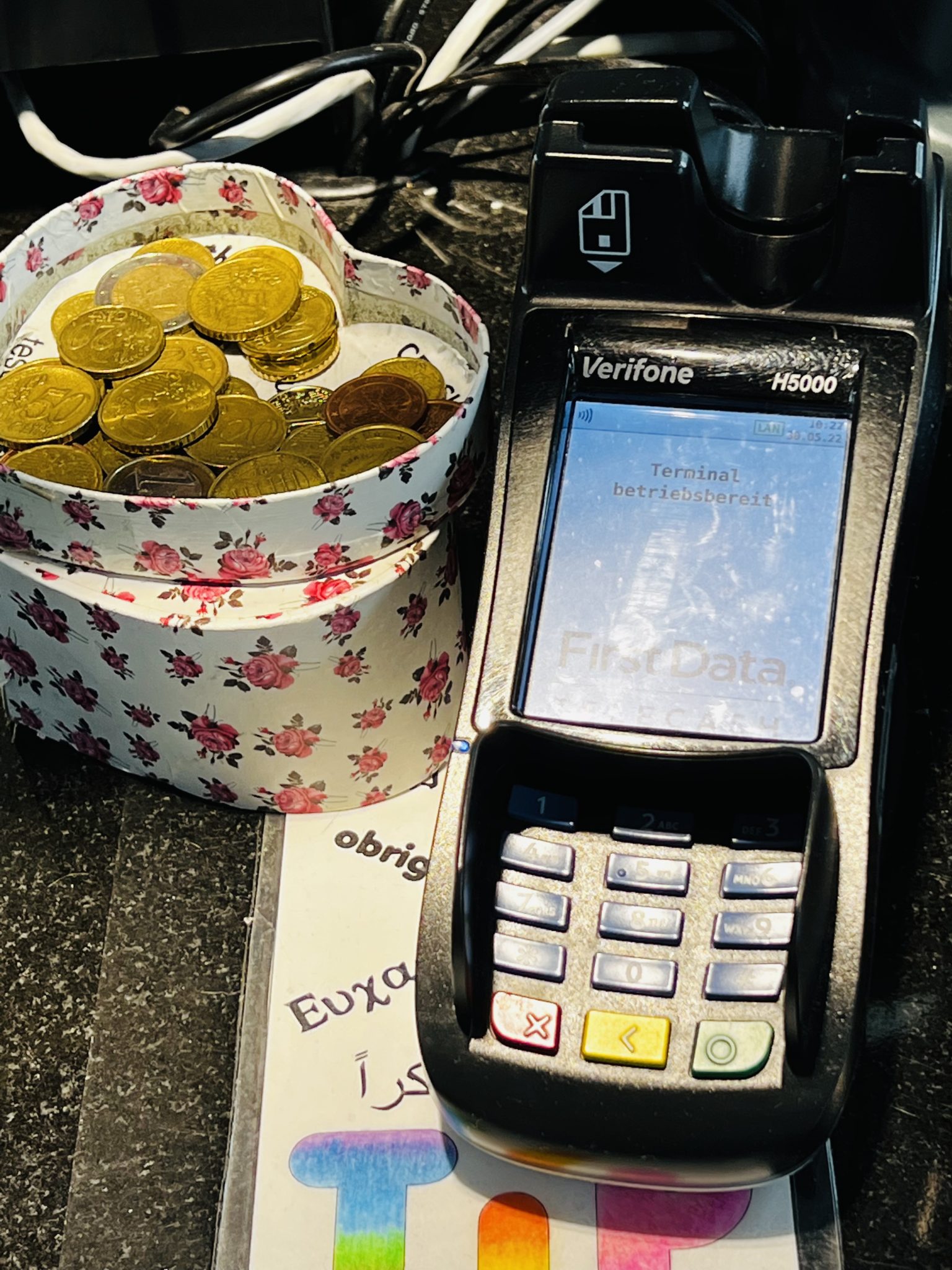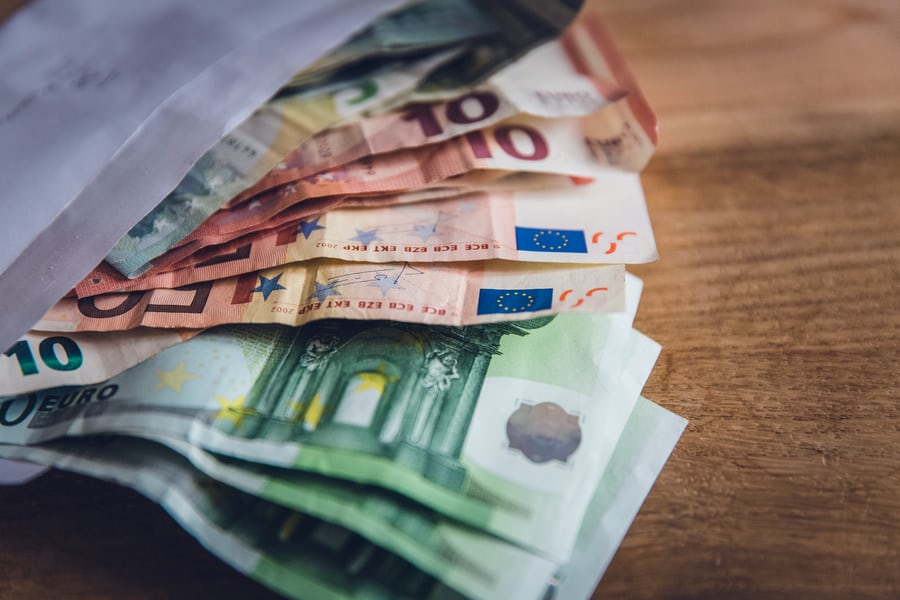The motto “cash is king” seems to be becoming popular again. Especially for “business transactions”, cash can obscure payment flows. Investments in digital payment infrastructures must therefore all the more not be a trivial matter.
Bares für Rares is the title of a ZDF flea market show hosted by Horst Lichter. Anyone who accidentally zaps in or intentionally tunes in will see how some rarity or curiosity is auctioned off by one of the five junk dealers present and then casually paid for with euro bills. There are now probably over 1400 episodes of this program.
Ultimately, the title is a variation of the motto: “Only cash is real”. This seems to apply not only to the junk trade on TV, but also with politicians, as we citizens:inside could observe in the media only recently again.

The donation suit-case of Mr. Schäuble already nearly forgotten, brings now the public prosecutor investigation of a safe-deposit box with a Hamburg savings bank 214,800 euro in household mixture to the daylight.
“Business transactions” will gladly continue to be settled in cash
The tenant of this locker is a former Social Democratic member of the Bundestag who, according to Wikipedia, sees his competencies in budgetary issues, auditing and the digital society. Cameralistics is, of course, not the accounting of a private person. Nevertheless, there is usually little contact with cash there as well. It is presumably for this reason alone that the same politician deposited the cash there (supposedly safely) so that he would not come into contact with it in his everyday life. And, of course, it is also virtually impossible that this amount could have come from a private bank in Hamburg. This is because the latter would certainly have settled any “brokerage fees” with a SEPA transfer.
The “stupid thing” in the digital cashless world is that money flows are easier to track. This also enables the tracks to money laundering, fraud or bribery to be uncovered more quickly. Therefore, in real life, there are still many “business transactions” that are much better handled in cash.

Retailers and citizens continue to hold a lot of cash in inventory
The demise of branches at banks and savings banks is certainly also helping to ensure that larger amounts of cash continue to make it into retailers’ coffers, especially those of jewelry stores or upscale hotels and restaurants. This is because the branch closures inevitably meant that the safe deposit boxes had to be emptied as well, which are now happily finding their way into the economic cycle as a hoard of substantial cash holdings.
Even the Bundesbank’s current study on payment behavior in Germany (published in July 2022) does not suggest that the amount of over EUR 200,000 is the famous “nest egg”. According to the study, cash is not only kept in wallets, but also at home. The only difference is that the average amount in the domestic coffers is 463 euros. Here, the Bundesbank acknowledges that “this sensitive question, however, must be assumed to be answered with restraint.” The inclusion of, for example, professional politicians in this survey with imputed honest responses might have resulted in a higher average score.
Political caution with cashless payment transactions
The question of the future viability of cash is apparently not only a central one for German politicians. After all, the German Bundestag is also intensively examining the question of impact assessment if cash were suddenly to cease to exist. The fact that digital payment has fallen somewhat into disrepute in political Berlin since the Wirecard case can perhaps be understood with a certain superficial approach. However, the fact that a study entitled “World without cash” was commissioned directly, in which mostly common knowledge was put on paper, seems a bit exaggerated.
However, this study provides the above-mentioned politician (the one with the more than 200,000 euros in cash in his safe deposit box) with an opportunity to defend himself. It states: “Compared with non-cash means of payment, cash is an important corrective in payment transactions. No non-cash means of payment achieves a comparably high level of inclusion and protection of privacy. By storing value in cash, consumers:inside can avoid negative interest rates.” This is likely to bring tears to the eyes of many a tax official. The negative interest rates are now also old news! But what some would like to see subsumed under the protection of their privacy is often just a systemic sham for laundering “black” money where even the most modern AI-supported anti-money laundering systems cannot take effect.
Card payment enjoys great trust among the population
You can spin it any way you want. Cash that does not come from taxed income and is withdrawn from an ATM and then promptly spent again in a store or restaurant is considered illegal. It is therefore only logical and good that the trend toward digital payment continues to gain ground. And there is no doubt about this, if one follows the explanations of the Bundesbank study. Whereas cash in the wallet used to guarantee control and clarity, the attributes “simple, fast, secure and overview of spending” are now attributed to the (debit) card by more than a third. If we were to ask people up to the age of 30, the figure would certainly be over 70%.

Even the “hickup” in May, which brought inglorious notoriety to the H5000 card reader, will not harm this trend. It was a small “wake up call” for the payment industry that investments in payment infrastructures at payment service providers and retailers must not be a triviality and have their price.
But if we consider the current concerns and hardships now being discussed around energy supply issues, our beautiful non-cash payment world is a far cry from such risks we are currently experiencing in other areas of critical infrastructure.
Scaring does not apply
The past few years have shown that the competitive landscape in digital payments is constantly changing. Even though there is always consolidation among established players, new providers are emerging at the same time to offer a more digital society the payment innovations it needs or wants. And cash will remain in play for a long time to come. The call to “save cash” – as it recently appeared in a commentary in the F.A.Z. – is therefore misleading in my opinion.
To imply an overdependence on digital payment infrastructures and to draw an analogy to the dependence on Russian gas is not to understand too much about payments. Scaremongering with digital payment does not apply!
